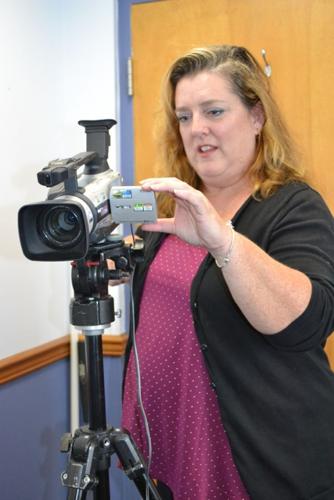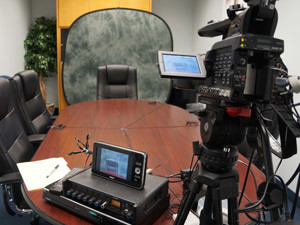Are legal videographers worth the investment? An honest look at their value in litigation
Discovering the Various Types of Legal Videographers and Their One-of-a-kind Offerings
Legal videographers play an important function in the judicial process, each focusing on distinct facets of court documents. Their expertise ranges from recording witness testimonies to improving trial presentations. Understanding the different offerings of these experts can brighten their contributions to legal process. As the complexities of modern-day lawsuits grow, the value of their roles ends up being significantly apparent. What details features do these videographers serve, and just how do they affect the results of instances?
Recognizing Legal Videography
Legal videography plays a crucial duty in the judicial procedure, offering aesthetic documentation that can boost the clarity and accuracy of legal procedures. This specialized area involves recording video recordings of numerous legal events, such as trials, hearings, and other substantial minutes within the legal system. Legal videographers use advanced devices and methods to ensure top quality video footage, which can serve as important proof throughout litigation.Understanding legal videography calls for acknowledging its relevance in conveying details in a visual format. The recorded footage can aid juries and judges better understand the context and subtleties of statements and occasions, potentially influencing judgments. Furthermore, legal videographers have to stick to stringent standards and criteria to keep the honesty of the recordings. Their job not only help in maintaining a detailed account of procedures but additionally adds to the total openness and responsibility within the legal framework, making sure that justice is served effectively.
Deposition Videographers
Deposition videographers play a crucial role in legal proceedings by tape-recording witness statements for future reference. They make use of specific equipment and techniques to assure high-grade video clip documents that precisely captures the subtleties of each deposition. Understanding their methods and the relevance of their job can enhance the performance of legal discussions.
Role in Legal Procedures
While usually neglected, the duty of videographers in legal proceedings is necessary, especially throughout depositions. These experts document witness testimonies, recording both spoken and non-verbal cues that can be crucial in court. Their recordings work as an exact representation of the deposition, offering a trustworthy reference for lawyers and juries. Videographers assure that the environment is specialist, lessening disturbances and sticking to legal requirements. They are trained to deal with various situations, consisting of unanticipated interruptions or technological difficulties, securing the honesty of the tape-recorded material. In addition, the presence of a videographer can deter incredibly elusive habits from witnesses, promoting even more honest actions. In general, their contributions considerably enhance the quality and effectiveness of legal proceedings.
Tools and Methods Used
The devices and techniques utilized by deposition videographers are important for creating high-quality recordings that precisely capture witness testimonies. Professional-grade video cameras, commonly with 4K resolution, guarantee clear visuals, while high-fidelity microphones capture sound without distortion. Videographers usually employ tripods for security and lights equipment to enhance visibility, particularly in less-than-ideal setups. Techniques such as mounting the witness correctly and maintaining proper angles are vital for communicating body movement and expressions. Many deposition videographers also utilize electronic modifying software application to boost the end product, assuring clearness and coherence. Furthermore, they might include time-stamping and comments during post-production to promote recommendation throughout legal proceedings, eventually supplying a complete and trusted document of the deposition.
Trial Discussion Videographers
Test discussion videographers play a crucial duty in courtroom settings by properly envisioning proof and improving the narration procedure. Using advanced technology and specialized equipment, they develop compelling discussions that aid courts and judges understand complex info. Their competence in efficient storytelling strategies better raises the influence of legal debates during trials.
Function in Court Room Settings
Frequently, legal videographers play an essential role in court room settings by catching and offering aesthetic proof that boosts the clearness of legal disagreements. These experts concentrate on recording witness statements, depositions, and essential proof, making certain that the proceedings are properly taped for future recommendation. Their job not just aids in the prompt discussion of cases but likewise offers as a valuable resource during charms or evaluations. Trial presentation videographers thoroughly put together and modify footage to create compelling visual stories that attorneys can utilize to convince discretionary. By incorporating aesthetic components into the test, they greatly add to the general efficiency of the legal procedure, facilitating a much more enlightened decision-making environment within the courtroom.
Technology and Equipment Made Use Of
Modern test discussion videographers rely on advanced technology and customized equipment to effectively capture and present proof in the court room. High-def cameras are often utilized to ensure that every information is videotaped with clarity, while multiple cam angles can boost the aesthetic story. Videographers regularly utilize wireless microphones to record clear sound from witnesses and lawyers, reducing diversions. Additionally, sophisticated software program tools permit real-time modifying and smooth combination of video, pictures, and displays throughout discussions. Projectors and huge displays are generally employed to present content in an engaging way, making certain that jurors and judges can quickly comply with the procedures. This mix of modern technology and equipment is important for creating impactful courtroom discussions that help with understanding and retention of details.
Reliable Storytelling Methods
Recording top quality video clip and audio is simply the beginning for trial discussion videographers; efficient narration strategies play a pivotal duty in communicating complex legal narratives. These specialists utilize various approaches to boost the clearness and influence of the material presented. By meticulously structuring the visual and audio elements, they create a systematic flow that guides jurors through the truths of the case. Making use of techniques such as thematic framing, sob story, and rational development, they highlight key factors and bolster the general debate. Additionally, incorporating visuals, such as layouts or animations, can streamline elaborate concepts and keep the audience involved. Ultimately, test discussion videographers change raw footage into compelling stories that reverberate with jurors, promoting notified decision-making in the court.
Video Evidence Specialists
Video clip evidence specialists play an essential function in the legal procedure, ensuring that visual recordings are properly recorded, protected, and offered in court. These professionals are trained to manage a selection of tape-recording devices and techniques customized particularly for legal setups. They concentrate on obtaining premium recordings that can hold up against analysis, sticking to rigorous procedures to preserve the honesty of the evidence.Often associated with the documentation of criminal offense scenes, depositions, and witness declarations, video evidence experts are knowledgeable in creating footage that is both clear and reputable. They are additionally knowledgeable about legal standards and needs, guaranteeing that their work conforms with administrative laws. In addition, these professionals might assist in the post-production procedure, editing and enhancing and formatting videos for best presentation. Their proficiency help lawyers in properly sharing their situations, making the duty of video clip evidence experts necessary in the search of justice.
Court room Videographers
While the article source court room commonly functions as the phase for vital legal process, court videographers assure that these moments are recorded with accuracy and quality. Their key function is to record all elements of a trial, get redirected here including witness testaments, opening up and closing declarations, and jury responses. Using specific tools, court videographers assure that audio and video clip high quality meet the standards needed for legal documentation.These experts are adept at the office unobtrusively within the courtroom setting, navigating through the essential procedures and maintaining the honesty of the legal procedure. They often team up closely with lawyers to comprehend details requirements, making sure that vital elements are recorded for future reference.Furthermore, court videographers play a necessary role in maintaining the authenticity of the process, supplying an important source for appeals or additional lawsuits. Their know-how guarantees that all tape-recorded material serves as a trusted account of the court occasions for all parties included.

Post-Production Providers and Editing

After the courtroom proceedings are videotaped, the focus shifts to post-production services and editing, which play a significant role in refining the captured material. Legal videographers use specialized software application to improve video clip high quality, making sure clearness and professionalism and trust. This phase often consists of shade improvement, audio improvement, and the removal of any type of supplementary footage, developing a meaningful narrative that aligns with legal standards.Additionally, videographers may include graphics, notes, or captions to provide context or emphasize important info. The editing procedure additionally entails organizing the video footage chronologically or thematically, making it much easier for legal groups to reference particular sectors during tests or depositions. Legal videographers typically prepare last edits in different styles to accommodate different platforms and uses, ensuring ease of access for all stakeholders involved. Inevitably, efficient post-production services are necessary for producing high-quality legal video clips that sustain the situation available.
Regularly Asked Questions
What Certifications Should I Look for in a Legal Videographer?

Just How Do Legal Videographers Ensure Video High Quality and Dependability?
Legal videographers assure video clip quality and integrity via high-def equipment, cautious illumination, and audio monitoring - legal videographers. They also abide by legal requirements, make use of backup systems, and conduct extensive pre-production preparation to lessen possible concerns throughout recordings
What Tools Do Legal Videographers Generally Utilize?
Legal videographers usually use high-def cams, tripods for security, outside microphones for clear audio, and illumination tools to boost exposure. They might likewise utilize modifying software to guarantee polished and professional final items for legal process.
The length of time Does the Modifying Process Usually Take?
The editing process for legal videographers generally varies, varying from a couple of hours to a number of days. Elements such as video clip intricacy, needed high quality, and particular customer demands considerably influence Read Full Report the overall time dedication needed for completion.
Are Legal Videographers Acquainted With Courtroom Decorum?
Legal videographers commonly have a strong understanding of court room rules - legal videographers. Their training frequently consists of knowledge of correct behavior, tools placement, and respect for legal process, ensuring their job lines up with the official environment of the court